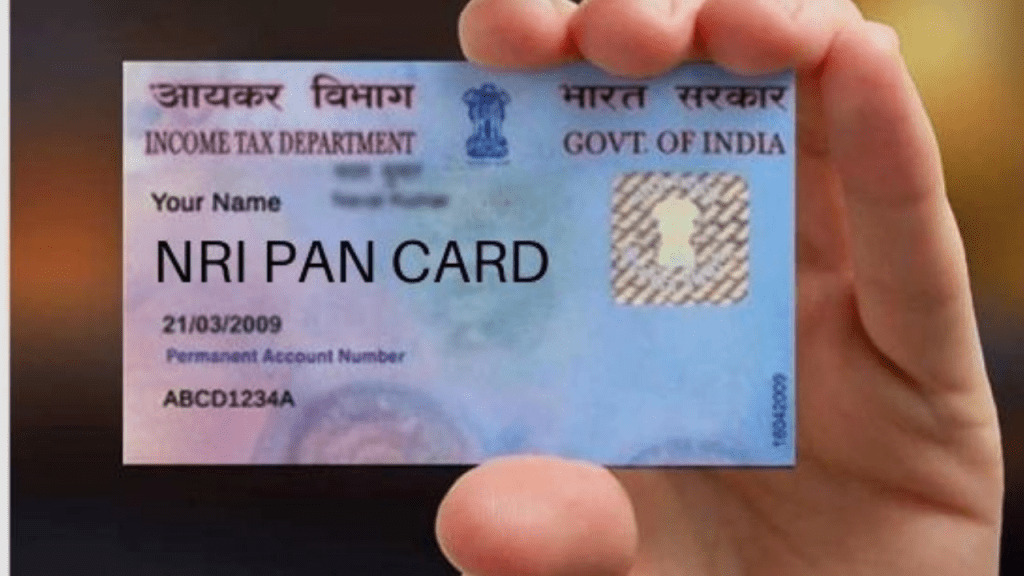A Permanent Account Number (PAN) card is a crucial identification document issued by the Income Tax Department of India. While most people associate it with resident Indians, it is equally important for Non-Resident Indians (NRIs) involved in financial transactions or earning income in India. Whether you’re planning to invest, own property, or file taxes, having a PAN card simplifies and legalizes your financial operations in the country.
Why Do NRIs Need a PAN Card?
An NRI PAN card is not just a formality — it’s a legal necessity. Here’s why you need one:
- To invest in Indian mutual funds and the stock market: SEBI mandates a PAN for NRIs engaging in equity or mutual fund investments.
- Opening NRE/NRO accounts: These specialized accounts require a PAN to operate.
- Property transactions: Buying or selling property in India above a certain threshold (generally ₹10 lakhs) necessitates a valid PAN.
- Income tax filing: If you earn taxable income from sources like rent, capital gains, or dividends in India, you must have a PAN.
Who is Eligible for an NRI PAN Card?
Eligibility criteria for NRI PAN card for an individual residing outside India is:
- The person holds Indian citizenship but lives abroad
- Is a Person of Indian Origin (PIO)
- Holds an Overseas Citizen of India (OCI) card
- Has income or intends to conduct financial transactions in India
Documents Required for NRI PAN Card Application
To apply for a PAN card as an NRI, you’ll need the following:
- Two recent passport-sized photographs
- Copy of your passport (serves as both ID and citizenship proof)
- Proof of overseas address (examples: foreign bank statement, utility bill, or residence permit)
- For PIO/OCI cardholders, a copy of the respective card
- NRE bank account statement showing recent transactions, attested by the Indian Embassy or authorized bank official (if applicable)
If you’re applying with an Indian office address, you may also need:
- Employer-issued address certificate
- Appointment letter
- Employer’s PAN details
How to Apply for an NRI PAN Card
You can choose to apply online or offline. The online process is faster and more convenient:
Online Process
- Visit the official websites of UTIITSL or Protean (formerly NSDL).
- Select “New PAN for Indian Citizens (Form 49A).”
- Fill in your personal details, choosing “Non-Resident Indian” as your status.
- Upload scanned copies of the required documents.
- Pay the applicable fee using a card, net banking, or UPI.
- Submit the form and save the acknowledgement number.
- Print the acknowledgement receipt, sign it, and affix your photographs.
- Send it along with the documents to the appropriate office by courier/post.
Offline Process
- Obtain Form 49A from UTIITSL or Protean.
- Fill it out in black ink, attach your photos, and submit it with required documents and fees to the nearest PAN service center.
PAN Card Fees for NRIs
- Delivery to foreign address: ₹994 (includes application and dispatch charges)
- Delivery to Indian address: ₹107 (inclusive of GST)
Note: Foreign delivery is only available in select countries listed on the official PAN application sites.
Timeframe for PAN Card Issuance
After submission, it usually takes about 15 to 20 working days to process and dispatch the PAN card. Ensure your documents are correct to avoid delays.
Key Tips for Smooth NRI PAN Registration
- Avoid overwriting or corrections in the form.
- Ensure your name matches across all documents.
- Don’t apply for multiple PAN cards.
- Attach clear, unstapled photographs.
- Use accurate AO (Assessing Officer) codes.
Having a PAN card is essential for NRIs who are financially active in India. It helps you stay compliant with Indian tax laws, manage investments, and conduct transactions seamlessly. By following the correct application process and ensuring proper documentation, obtaining your NRI PAN card can be a straightforward and hassle-free experience.
If you’re an NRI with Indian financial interests, now is the time to apply and stay tax-compliant!



